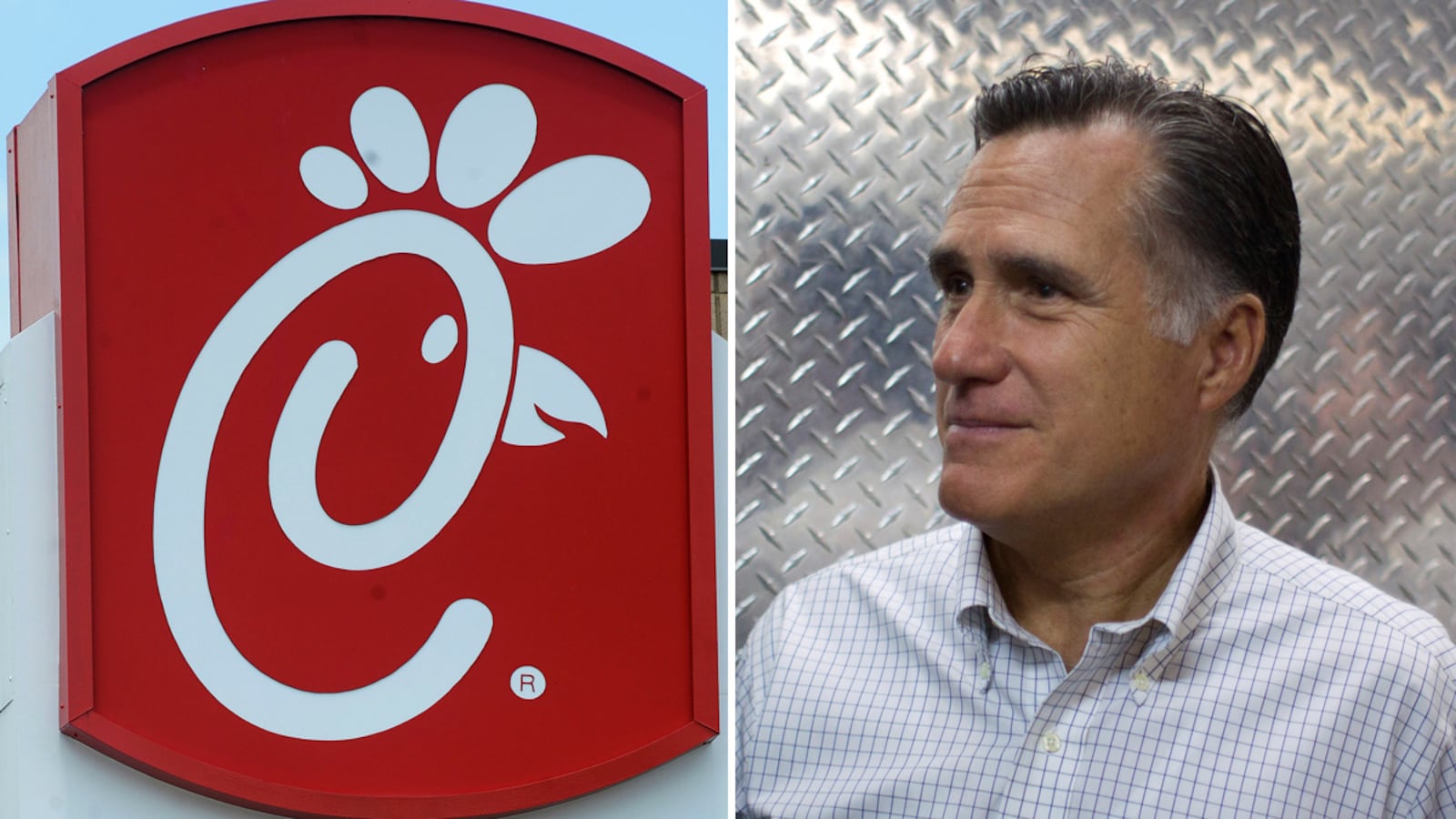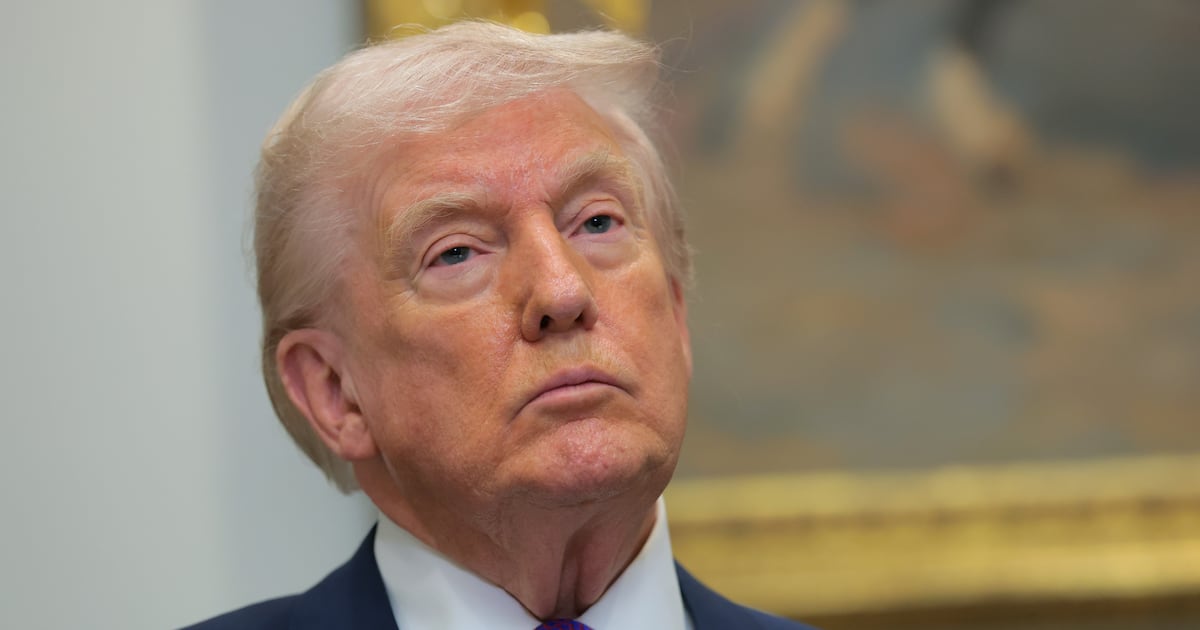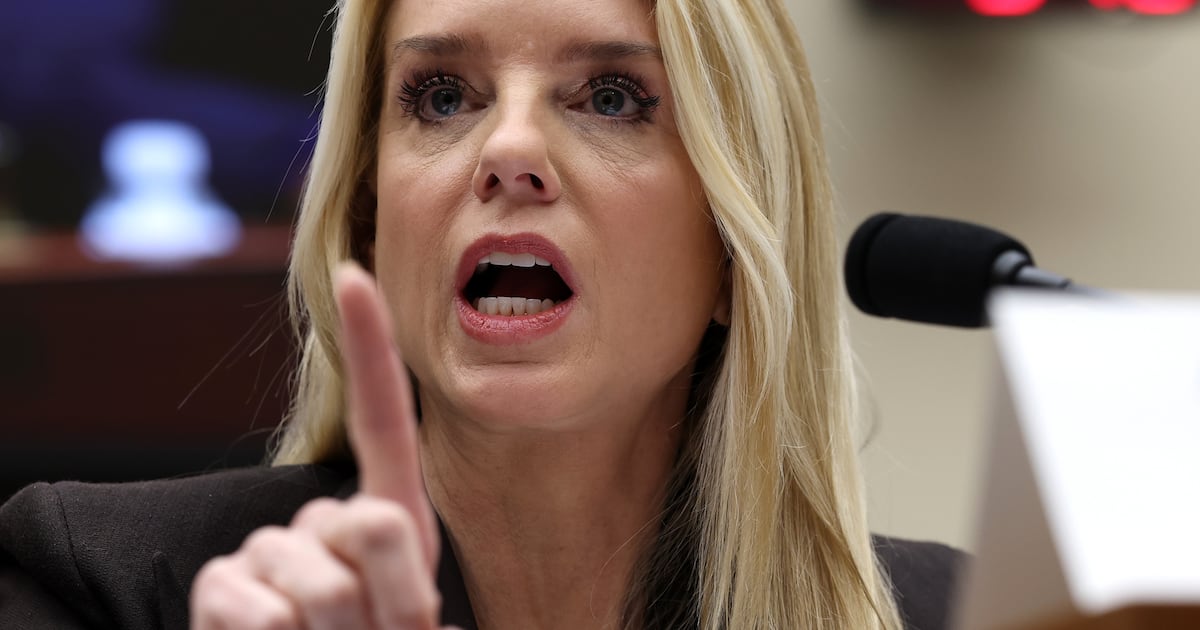In the modern era, presidential campaigns are very much like large corporations. And in some instances, they take on the characteristics of well-known companies. The 2008 Obama campaign, for example, was very much made in the vein of Facebook circa 2008—networked, young, tech-savvy, idealistic.

So what’s the corporate analog for the Romney campaign? How about Chick-fil-A?
At first blush, the highly upscale Ivy League-pedigreed Mormon candidate may not seem to have much in common with the downscale southern-fried fundamentalist restaurant chain. But consider the following similarities.
Chick-fil-A is a well-known American brand that was founded by a charismatic, rustic entrepreneur with a hardscrabble upbringing who didn’t graduate from college. See Truett Cathy’s inspiring life-story here. While the founding figure looms large, the franchise is firmly in the hands of second-generation leadership. Dan Cathy, Truett’s son, is president of the company. Just so, the Romney name is a well-known American political brand that was founded by a charismatic, rustic entrepreneur with a hardscrabble upbringing who didn’t graduate from college. George Romney rose from a humble birth to become an auto executive, governor of Michigan, and Housing secretary in the Nixon administration. The Romney political brand is now firmly in the hands of the second generation leadership.
Chick-fil-A is huge in the South but doesn’t have any presence to speak of in New England, save a vestigial presence in Massachusetts and a token outpost in New Hampshire. Check out the store locator: its biggest states are Texas (264 outlets), Georgia (197), Florida (155), and North Carolina (143). Chick-fil-A has no outlets in Maine, Vermont, Rhode Island, or Connecticut, just two in Massachusetts, and a single lonely store in New Hampshire. The Romney campaign is similarly huge in the South. Polls generally show that he is generally crushing it in the former Confederacy and is making a strong play for Florida. Romney, like Chick-fil-A, doesn’t seem interested in competing seriously in the large market east of the Hudson River. Of course, he does have a vestigial presence in Massachusetts (where the campaign is nominally headquartered) and a token presence in New Hampshire, where he owns a large lakefront house.
Chick-fil-A’s expansion plans seem to rest largely on appealing to its existing base in rural areas and ignoring the vast new customer base that lies in more diverse areas. As this list of upcoming openings shows, it’s not particularly interested in densely populated urban areas or college towns. Of the upcoming 19 openings slated for later this year, two are in Idaho, three in Texas, and two are in North Carolina (although there are a bunch slated to open in California). Just so, the Romney campaign is largely focused on appealing to the Republican party’s existing base–the wealthy, the old, the white–and doesn’t seem particularly interested in the vast new customer base that lies in more diverse areas. The latest NBC/Wall Street Journal poll shows Romney getting precisely 0 percent of the African-American vote, and a smaller share of the Hispanic vote than John McCain did in 2008.
Chick-fil-A seeks financial privacy. We live in an age when companies of all sizes aspire to go public. But Chick-fil-A, a vast company with $4.1 billion in annual sales, remains “privately held and family owned.” Aside from Burger King, it is probably the largest fast-food chain still in private hands, and it is certainly the largest fast-food chain controlled by a single family. Rivals like McDonald’s and Taco Bell are publicly held, and willingly share extensive details on their finances. But Chick-fil-A has chosen an ownership structure that lets it avoid disclosing a lot to the public. Just so, the Romney campaign has tenaciously clung to financial privacy. In an age of greater disclosure and transparency, Romney is keeping details of his finances and taxes extremely close to the vest–despite the huge pressure he faces to disclose more. His fortune remains privately held and family owned. And he has chosen a set of ownership structures–private equity, offshore accounts, blind trusts, partnerships–that let him avoid disclosing a lot to the public.
Chick-fil-A willfully embraces unhealthful consumption habits. Sure, it has wraps and salads. Here’s the menu. But let’s be real. People aren’t coming in for the chargrilled chicken salad and fruit cup. A meal of a fried chicken sandwich, medium fries, medium sweet iced tea, and ice cream cone contains 1,300 categories and 2,010 milligrams of sodium. Chick-fil-A, in other words, is a major proponent of an oil-based strategy for fueling the body. Now, Mitt Romney is a fit guy, and running mate Paul Ryan probably burns 1,300 calories in one of his P90X workouts. But when it comes to transportation and electricity generation, Romney also encourages unhealthful consumption habits. He’s been campaigning against subsidies for renewable energy, and against electric vehicles and government-mandated efficiency measures. And he has been pushing for greater use of coal and oil drilling. He’s a major proponent of an oil-based strategy for fueling the nation.
Chick-fil-A has taken a hard line against gay marriage. President Dan Cathy unleashed a furor last month with his strident remarks against gay marriage. The stance made some potential customers less likely to patronize the company and encouraged them to think that the top manager is a jerk who is out of step with the times. But it also led many existing customers who agree with Cathy to intensify their support for the company. Mitt Romney, who once proclaimed that he would be better on gay rights than Ted Kennedy, has similarly taken a hard line against gay marriage. Now he’s the standard bearer of a party whose platform is opposed to civil unions for gays. This stance has made some potential voters less likely to vote for Romney and encouraged them to think that the candidate is a jerk who is out of step with the times. But it has also led many existing Republican voters who agree with Romney to intensify their support for the candidate.






